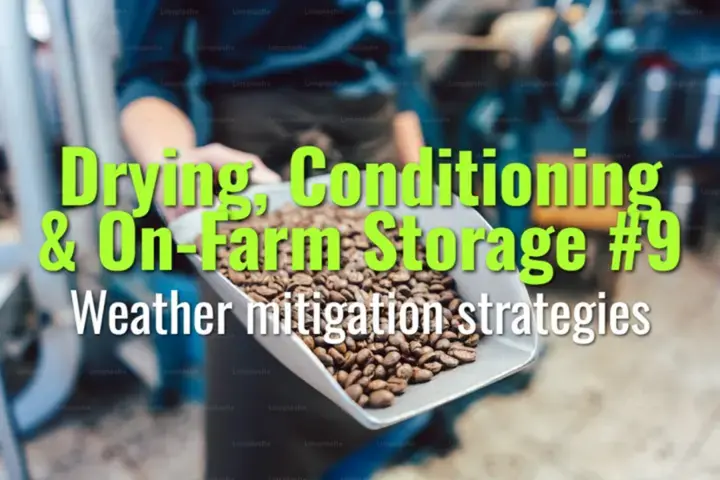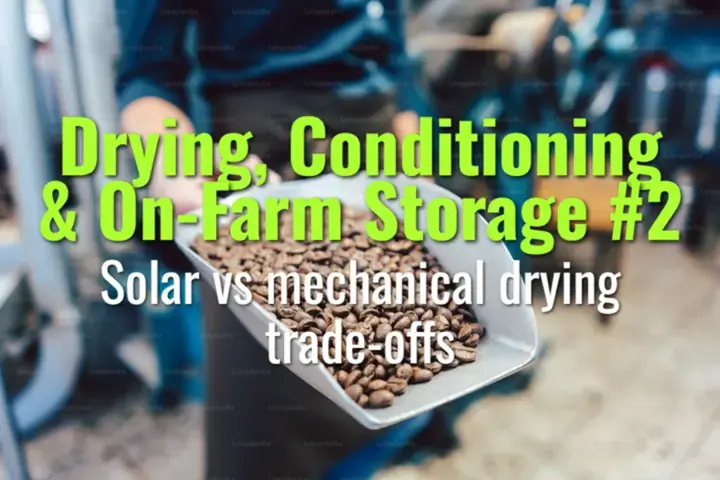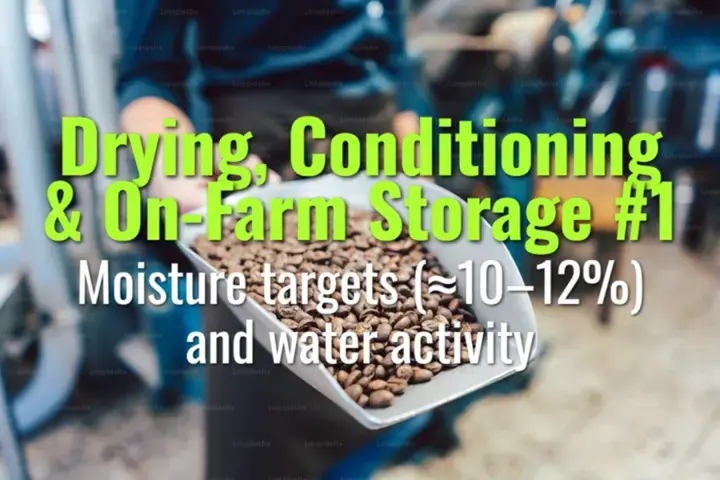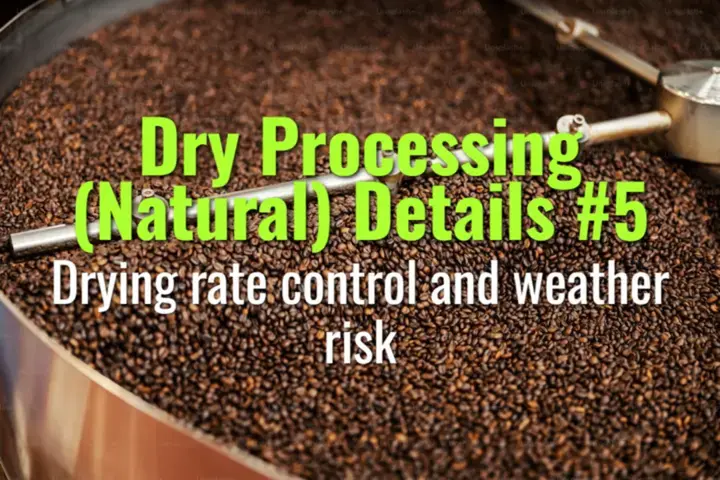
Water and energy footprints
The water and energy demands across the coffee supply chain, how they are measured, and strategies to reduce their environmental footprint.

The water and energy demands across the coffee supply chain, how they are measured, and strategies to reduce their environmental footprint.

This topic explains how farmers manage weather-related risks during coffee drying and storage, with strategies to protect against rain, humidity, wind, and excessive sun exposure.

This topic explains the trade-offs between solar and mechanical drying methods for coffee, highlighting differences in cost, quality, consistency, and environmental impact.

This topic explains the importance of hitting correct moisture content and water activity targets in coffee drying, why they matter for stability and quality, and how farmers measure and manage them.

This topic explains how altitude and humidity influence honey and pulped natural processing, affecting drying times, fermentation dynamics, and final flavor outcomes.

This topic explains how controlling the drying rate and managing weather risks are essential in natural (dry) coffee processing to ensure stability, flavor quality, and defect prevention.